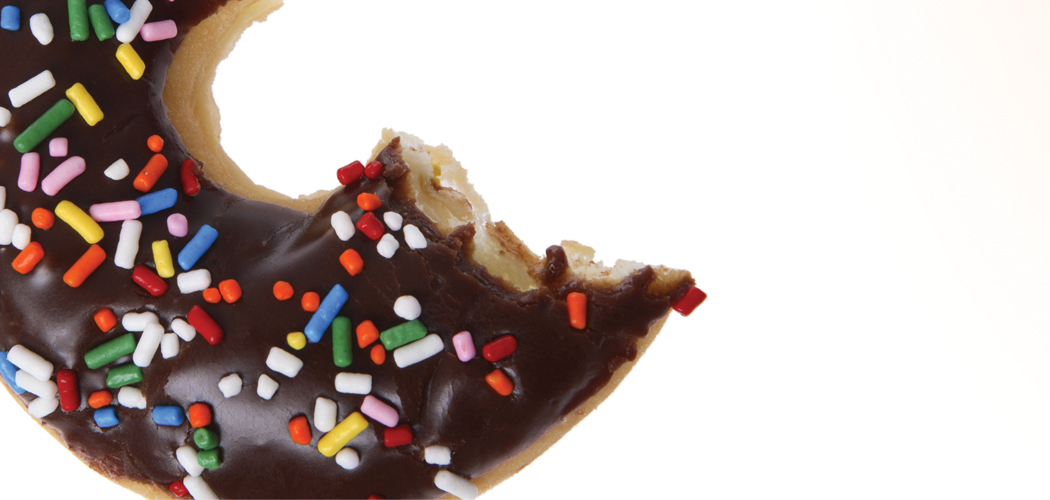[title subtitle=”fiction: Marla Cantrell”][/title]
The whole thing started with an article I read in a magazine while sitting at the hair salon. In it, there was a black-and-white photo of a boy in his teens inside a pizza place, his head bowed, his hands in fists at his side. He was seeing a psychiatrist who worked exclusively with people who thought about dying every minute of every day. This guy was one of them. And he was near about tortured by it. The gist of the article was this: It’s hard to enjoy a pizza pie with the Grim Reaper sitting at your table, asking can he have a slice.
That night, even with my hair looking as good as it had in years, I realized how unhappy I was. I couldn’t get that kid out of my head. And I couldn’t quit thinking that my time was running out, and when I dreamed I was at a basketball game staring as the clock ran down: four minutes, two minutes, finally six seconds — that’s when I woke up in a sweat, my hair wrecked, by the way.
And then I thought about my own daddy, who’d had a heart attack just shy of fifty, and how for months afterward he sat in his recliner with two fingers on the opposite wrist, checking always for a pulse, certain if he got sloppy, if he let up even a little, he would surely die.
I was nineteen then. I’d think about the miracle of my own body. How new cells replaced the old, day after day, and how the thought of it made me feel reborn. I still had the skin of a toddler, and so much hair the weight of it gave me headaches when it grew past my shoulders.
Lately, though, I’d been worrying about my own health. My skin had roughened, as if I’d spent time surfing or skiing, though, of course, I had not. And I had odd pains, like someone pinching me inside my skull, near my left temple, and then my eyes would go all twitchy and the world blurred.
Strange, I thought, for someone only thirty-one.
And now I’m consumed with dying. The really smart people are, if what the magazine says is true. The delusional ones, they’re probably too busy watching reality TV, as easily distracted as a yard dog when company shows up. I got a physical — blood work, the whole nine yards — and my doctor said he wished all his patients were as healthy as me. For an entire day I believed him. But the next day, and every day after, I had this feeling of doom wake me each morning, and it dogged me everywhere I went. So, I found this psychiatrist’s office, not far from where I live, and I called him up.
The conversation that followed was with the receptionist, who took down my information and asked if I was suicidal. And I laughed because I was the opposite of suicidal. So, she had to ask again, and the whole thing made me feel like a giant loser.
My appointment is today. I’ve been up since five, trying to decide what to wear. I want the psychiatrist to like me. I also want him to fix me. In one visit.
Outside, the sun is starting to rise. The sky glows pink in places, and the beauty of it swells inside me. Pink used to be my favorite color, but lately it makes me think of all those pink ribbons for breast cancer awareness, and my pulse races. I start to check for lumps, and it takes all the willpower not to do it.
Just last week, the neighbor’s boy, a white-haired first grader, got stuck in the mud in his backyard after a downpour, in a spot where the grass refused to grow. The red clay tugged at him, the smell like mildew, and something else, something chemical. He was sucked in waist deep before his mother saw, and then screamed, and then called the fire department.
There’s yellow police tape around the spot now, and I haven’t stepped foot on my own lawn since.
My Taurus, thank goodness, is parked on the gravel drive, and as I open the door I wonder what will happen to it if I die. Who would take it? I don’t have a will. The car’s paid for. Old, I know, but still.
I adjust the rear view mirror and slowly pull out into the street. My appointment is at nine, and it’s only seven-thirty. I pull into Shelby’s Do-Nut Shop, something I haven’t done since I swore off carbs. The smell inside is like funnel cakes at the state fair: sugar, cooking oil old enough for a driver’s license, and yeast.
Diabetes, a slow death, is what I’m thinking as I order two cinnamon donuts made with potato flour. The coffee is hot and plain, made by a woman whose name tag reads Lou Ray, and who wouldn’t know a barista if one hit her in the face.
“My favorite,” Lou Ray says, “pointing to my donuts.”
“Mine too,” I say.
Lou Ray’s hair is the color of the steel counters behind her, her bosom ample, her legs surprisingly thin.
“You look nice,” she says. “Turquoise looks good on you. Me, I can’t wear bright colors.”
“I’m on my way to the airport,” I say, lying easily, the way I imagine all psychiatric patients do.
“Vacation?” Lou Ray asks.
“Hawaii,” I answer, and suddenly I can see myself there, if the plane actually made across the wide ocean.
“You know what I’d do if I could fly anywhere?” Lou Ray asks. “I’d go to Oklahoma, where the wind comes right before the trains,” she says, and I don’t correct her.
“And then I’d go see Will Rogers’ museum in Claremore.”
“Will Rogers died in a plane crash,” I say, and feel a kind of panic set in.
“Sure did,” Lou Ray says. “In an experimental plane. In Alaska. With his buddy. Took his typewriter and clicked out little stories on the flight. Wouldn’t you just love to read what he was writing?”
I shake my head. No, I would not.
Lou Ray, unfazed, continues. “And before that he was a cowboy — he had a lot of Indian blood — but a cowboy nonetheless. He was in vaudeville and then the silent movies and then the talkies. And then he started writing so good, things about the government and what not, that folks started paying attention. Started showing up in droves to listen to him speak.”
“Never met a man I didn’t like,” I say, the only Will Rogers’ quote I remember.
“What he said was,” Lou Ray counters, “‘I joked about every prominent man of my time, but I never met a man I didn’t like.’
“Think of it,” Lou Ray says, her hands sweeping out in front of her. “The guy goes around the world, what, four, five times. He comes from nothing. Nothing. He doesn’t know how to act, doesn’t know a thing about Hollywood, but he learns. He doesn’t have a fancy education, but he has a good head on him and a quick wit, and he takes on the politicians. He meets an Arkansas girl and falls in love and she won’t give him the time of day, but he keeps coming back. ‘I love you,’ he says, so many times she starts to think she might love him too.”
“What happened to her?” I ask.
“Well, honey, he married her, made her rich, and then he whipped through his life like a guy holding onto the tail of a tornado. And he made a living speaking his mind, but not in a hateful way like you see on the TV today, with everybody being so snotty to each other. No sir, Will Rogers was a gentleman.”
“He died too soon.”
“But, my, what a life.”
The bell above the door sounds. A harried mother with three little boys comes in. Only one has his shoes tied. Lou Ray pulls a new sheet of waxed paper from the box and waits for their order.
I pull a five dollar bill from my wallet and drop it in Lou Ray’s tip jar. I walk out into the sunshine. The traffic has picked up. Those late to work or school are rushing to get in place on time.
I slide in behind the wheel and watch for a while. Not one accident, not even a fender bender. Joggers zig between the cars, as safe as birds in a nest. A man on a bicycle jumps his front tire up on the curb near the traffic light, and then back down again, so that the bike looks like a giant bouncing bedspring.
On the radio, a country star is singing about the pain that shoots through your heart after the man you love starts loving someone else. I haven’t had a date in almost a year, I realize, counting the months on my sugary fingers. I shake my head, amazed by this fact, and feel my pulse, squeezing my left wrist tight with two fingers from my right hand, a reflexive move that started three weeks ago. It is strong and steady. I pull out into the traffic, and touch my chest, feeling the thump, thump, thump that keeps me planted on this great earth.
There is still time before my appointment, so I pull onto the interstate, a dangerous place by any sane person’s reasoning. I get my old car going fifty and then sixty and finally sixty-five. It shimmies and I tighten my grip, and I’m sweating, and my feet feel like ice, but I keep driving. There is a plane overhead, and it tips its wing as it begins its descent to the airport nearby.
I think about Will Rogers, and I think about Lou Ray, old as my grandma and still showing up for work every day, still full of dreams about Oklahoma. I think about my daddy, who finally rose from his Barcalounger, who finally said, “Enough is enough,” and went back to the factory.
I roll down my window and let the wind inside. It whips through my hair, it ruffles the edge of my skirt. There is a man wearing a suit in the car next to me, his shoulders hunched over the wheel, the corners of his mouth turned down. I honk and he looks over at me and I wave and he looks shocked, but then he smiles. He mouths “Thank you,” and I say it back, and the world feels a little more permanent, like maybe it will stay around a while. Like maybe I’ll stay around with it, me and all my glorious cells that seem to be doing their job right now, making me new again, making me over, keeping me going down this long and winding road.




